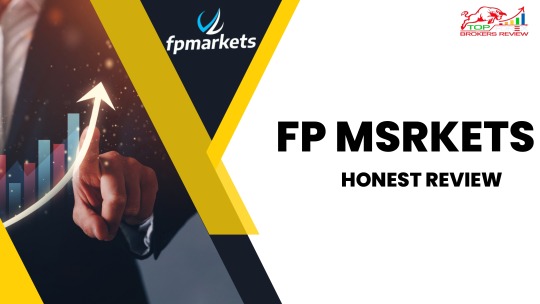#Australian Financial Review
Explore tagged Tumblr posts
Text
Sophie Lawton at MMFA:
Project 2025 director Paul Dans told the Australian Financial Review that he thinks a second Trump administration “will adopt” many of the initiative’s radical right-wing proposals. He also suggested that even if Donald Trump loses, Project 2025’s ideas would live on through the conservative establishment.
Project 2025 is an effort by conservative think tank the Heritage Foundation to plan policy ideas and staffing for the next conservative presidential administration
Project 2025 director Paul Dans told the Australian Financial Review that a 2nd Trump Administration would likely adopt a majority of Project 2025's policy recommendations in some form. Also, Dans noted that even if Trump loses, its influence in determining conservative policymaking will remain.
#Project 2025#Paul Dans#Donald Trump#Australian Financial Review#Trump Administration#The Heritage Foundation#Trump Administration II
8 notes
·
View notes
Text
In an interview with The Australian Financial Review on 11 March 1992, Frank Conroy, by then Westpac managing director, had said:
What AGC did was two things wrong. They were traditionalists . . . a consumer finance company, leasing and personal loans . . . They also used to do smaller type development projects. For example, they would lend to a builder who would buy five acres of land and build a lot of houses, and provide virtually the bridging finance, and they did that well for years. And then suddenly in the late 1980s, from about 1987 onwards, they took two steps. First of all they went into these individual large company loans, $1 billion at a time, really big stuff . . . big, big stuff, big pending, they had never done before. And the second thing they did wrong was the joint ventures where they went in for part of the development and actually selling them. Well, that went wrong because you can't sell them.
"Westpac: The Bank That Broke the Bank" - Edna Carew
#book quotes#westpac#edna carew#nonfiction#interview#the australian financial review#finreview#march 11#90s#1990s#20th century#frank conroy#managing director#agc#australian guarantee corporation#traditionalist#banking#finance#lending#loans#property development#80s#1980s#joint venture#where did we go wrong
0 notes
Text



British Royal Family - Zara Tindall for the new issue of Australian Financial Review Magazine. (Photo by Hugo Burnard) | December 2024
204 notes
·
View notes
Text



Daniel Ricciardo for Australian Financial Review Magazine | 📸 Shaughn and John
#daniel ricciardo#autumn posts#I had seen this photoshoot on tumblr but not the first and third shots!!#possibly me being bad at using tumblr (likely!) but I did want to swoon so#AHHH 🫠✨#filing under things that are just new to me#the last one is especially 🙂↕️✨#ahhh I'm still waking up!! I'm so ready for a break 🫠#hope everyone is well!! ❤️💫✨
94 notes
·
View notes
Text
Sims In Bloom: Generation 2 Pt. 84 (Checking In On the Clinic - and Another Baby Boom??)


cw: it's not a Conther baby I'll just say that right now. Sorry!
On top of her responsibilities to her family, Heather worked hard to keep Buttercup Pet Clinic's great reputation, but life at work was rarely easy.
She'd recently noticed a dip in her ratings and was tech-savvy enough to realize she'd been targeted. She traced the IPs to an address connected to George Brindleton's old company and gave the evidence to Conrad.
"He's trying to hurt my business because he's still sore over losing his, but as long as he's not going after the kids, I can take whatever he wants to throw at me. My clients know how good we are."

Conrad remembered his threat to sniff around Brindleton & Sons old financial files, but with this evidence he had cause for something better. "We're filing a restraining order," he insisted. "For you and the kids, because next time he might try to do more than hire a bot farm to drag your reviews down. But if I have to stay away from him, too, I can't look into his finances, if it comes to it."
"Is a restraining order really necessary? What if it makes him more upset? I'll always let you know if I hear from him again, but I'd love to just forget we ever met him."
Conrad nodded apologetically. "It's necessary. He just needed to do something stupid like this before I could file for one. Just keep focused on your clinic. I've got my eye on George Brindleton."

Heather tried to increase the value of her clinic's furnishings, but she lacked a real aesthetic eye and now she also had marketing expenses. With every passing day she worked hard, and though sometimes it never seemed enough, George Brindleton wouldn't break her.
One cold winter morning, Kaori Hayashi, Heather's best vet tech, tended to local blacksmith Abby Harms' Australian Shepherd, Jax. As Heather finished with another patient, Spencer Pancakes surprised her old friend when she brought her dog, JJ, to the clinic.
It wasn't that she'd brought her pet, as she had so many times before, but Spencer sported a sizable baby bump, too.

"Spencer! I can't believe it! I thought the doctors said-"
"They were wrong!" (Mod conflicts! Sorta wrecks the surrogacy storyline but also whatever.) "Needless to say, we didn't expect it. We kept it to ourselves until Dr. Scott said we were healthy. We wanted to tell you!"
"Are you feeling okay about it? I know you didn't want a big family."

Spencer sighed. "Everett's thrilled. I had to move another work trip to Selvadorada, but I'm making the best of it. I took my mom's advice and started painting, and it's nice that Lydia and I are pregnant at the same time. Since it's her first and I need all the help I can get, we're kind of in it together. The pregnancy really does feel like a miracle, and Everett's an incredible father."
"Your boys have a great mom, too." Spencer offered a pitiful smile, and Heather remembered her last visit with Spencer's father-in-law. "Bob came in with one of his cats back in the fall and he mentioned he was worried about you. I kept meaning to call and plan a trip like he suggested, but life's been so busy, and...I didn't want to believe what he was saying, I guess. It didn't feel like any of my business."
(Quick for new readers, Heather doesn't want to intrude on their family because Jett is her biological son with Everett, conceived via science as Heather was their surrogate. She's tried to set a clear boundary to avoid any confusion for or about toddler Jett.)

Spencer nodded. "Bob means well. And I'm doing okay, really. The baby kicks all the time. Like right now. Here: feel. Since we moved back to Henford, it's been better. We haven't had any snow yet!"
"Don't remind me. I miss the mild winters in Henford, but Ash really loves the snow. It's great enjoying it through his eyes."
"The boys love living with my parents and running through the fields like we did. Everett's family comes around all the time, and he's happier at the parish in Henford. Oh! Would you believe that old fox, Pawbin Hood, is still alive?! He's still wearing the Sherwood Forest get up you bought from the creature keeper when we were fourteen!"

"I guess I'm not surprised; I swear, the foxes will outlive us all. Everett thinks they react differently to the wild mushrooms than sims do." Gently, she steered the conversation back to her friend. "And all of that sounds great for everybody else. But what about you, Spence?"
"On days I'm feeling overwhelmed, I'm just glad everyone's there to pick up the slack."
"What about work?"

"Paused for now, I guess. At this point I won't get back to Selvadorada until this one's out of diapers." She pointed to her bump. "But if you can get away, you should come with me next time I go. You're just as good at identifying artifacts, and you love exploring the jungle as much as I do."
"I would love that," Heather said, awash with nostalgia over their first trip to the jungle for Spencer's bachelorette. After their quick visit, she tended to JJ - who was fine other than a mild case of lava nose - and she sent them on their way with a refill of organic disinfectant spray to keep treating him.
Later that afternoon, Heather took a moment to relax and hydrate when she was met by another surprise visitor. The woman walked in heavily pregnant and disguised under a bandana and sunglasses, but Heather recognized her name from her digital sign-in sheet. "Emi Wise? You used to be Emi Kudo, didn't you? You were a vet tech here when I was in high school!"

Emi looked around to ensure she didn't recognize any other faces in the lobby. "I remember you and your parents," she admitted. "When I used VetConnect to find a clinic to help my Olive, I realized Sorrel Jackson sold you this place. I like the rebrand, and I liked it even better when I saw you got away from Landgraab Corp. I think you might be the only vet in Simlandia who can help us. That's the only reason I risked coming back here."
As Heather healed Olive in an exam room, Emi noted the place hadn't changed much since she'd worked there. "You've rebranded, and you should really invest in a whole new look. My husband's an architect, and I think he could design something incredible. When Olive has to come back for her follow-up appointment, I'll bring him with me so he can get a look at the place, if you want."
"That sounds great, actually. I'm always looking for ways to really spruce this place up!"

Heather called Conrad to set one more plate at the table for dinner before she invited Emi to her home next door. Grateful for Heather's hospitality so she and Olive could rest a little before their long journey home, Emi opened up about her life in the years since she'd left Brindleton Bay in such a hurry.
"I had an affair with a married man, and he chose his wife, of course. I was so young and naive. I had no idea what to do, but I knew I couldn't stay. So I bought a one-way plane ticket to Evergreen Valley because it felt far enough away from here. I met a man and fell in love a month after I got to town, and he raised the twins like they were his own from the day they were born. We had a son together, and this one will be a girl."

"It sounds to me like everything worked out for the best. You don't have to tell me who the father is, but there are rumours around town."
(Basically, it's a good thing Kaori finished up with Jax and Mrs. Harms before Emi and Olive showed up!)
Emi's face went white. "Please don't tell him or his wife I was here. I promised I wouldn't ever ask for a thing for the boys, but if they see me here they might think I want to cause trouble."
"Your secret's safe with me," Heather promised.

True to her word, Emi brought her husband Layne for Olive's follow up, and he and Heather spoke about plans to revamp the clinic completely - a total rebuild, with class, elegance, and in keeping with Brindleton Bay's coastal charms.
Buttercup Pet Clinic was a place where people felt comfortable being open and vulnerable, and Heather heard her fair share of gossip inside the clinic walls. She was becoming something of a neighbourhood confidante, and took it seriously when people trusted her with their problems. With this in mind, Layne offered to add a small cafe - a relaxed gathering place for owners to wait for their pets and sip coffee. Heather was excited, and couldn't wait for spring to get started on construction.

As a bonafide Friend of the Animals, Heather was pretty great with her human friends, too. And she wanted her clinic to reflect that. ->
<- Previous Chapter | Gen 2 Start | Gen 1 Summary | Gen 1 Start
NOTE: So my game had ANOTHER baby boom but now I think I'm maxed and need some elders to expire before more nooboos will generate randomly. That said, in addition to Emi and her husband (Layne Wise originally known as Leoric Weild), Everett & Spencer, and Lydia & Alexander, River and Cassandra are expecting again, too! That's two more grandkids for Bella!

I checked on the Gen 1 Nesbitt household, where River and Cassandra live with Neal, Daisy, and their son Michael (plus dog Bernadette and cat Duchess) and pregnant Cass got on an autonomous video call with her mom. 🥰
NOTE 2: It's been on my list to get Heather and Spencer back to Selvadorada for almost a decade (in game!). I'm trying to complete the Jungle Explorer aspiration with Spencer, but there really has not been a good time as they both have small kids or keep getting pregnant. The aspiration isn't a requirement for this generation and more a bonus goal for me, but I really want to do it so stay tuned!
Heather's had Adventurous as a bonus trait since they went on their first trip together, and ever since then she's just been able to use it for wild woohoo and being eager and excited about the Ambrosia Society's challenge, whereas Conrad was a lot more cautious (about the latter - the wild woohoo doesn't trouble him at all!)
NOTE 3: As always, I thank @rinseesims for adding the iconic Leoric Weild from her iconic UDC to the Sims 4 gallery because he makes a great dad/architect in this universe!
#sims 4#sims 4 gameplay#sims 4 screenshots#sims 4 legacy#sims in bloom#ts4#ts4 gameplay#ts4 legacy#ts4 screenshots#sims 4 story#ts4 story#legacy challenge#sims legacy#ts4 legacy challenge#gen 2#brindleton bay#cassandra goth
57 notes
·
View notes
Text
Guest post by David Southwell, journalist at Daily Mail Australia
When the Albanese government's expert panel on Australia's Covid response delivered its report late last year the verdict was damning.
The panel found that harsh Covid measures were imposed often without any actual basis of evidence, which caused deep and widespread harm as well as loss of confidence in government.
The media, which I am a very small but picturesque part of, gleefully jumped on this finding.
The Australian Financial Review’s headline was fairly typical: “Heavy-handed COVID restrictions have destroyed trust in government.”
Noticeably missing, however, was any self-awareness of the media’s collective failure to hold maniacal governments to account during the Covid period, a failure which was near total and is largely ongoing.
At the start of the pandemic, I was not working in the media but in comms. From the vantage point of a news consumer I saw a deep, depressing and even bewildering abdication of the Fourth Estate’s supposed role to question and challenge those in power.
Instead of questioning draconian lockdowns at press conferences, I heard journalists cheering them and asking why they weren’t longer and harsher.
28 notes
·
View notes
Note
This has been on my mind a lot lately, but I couldn't find anything about this. I saw a data that says young people regardless of gender feel more lonely especially after covid. But articles everywhere describe the phenomenon as male loneliness epidemic. Is it true that loneliness affect men more than women?
Yes, I've noticed this as well! (It's definitely frustrating!)
In short, no, women and men experience similar amounts of loneliness. (Therefore, it should simply be a "loneliness epidemic" not a "male loneliness epidemic".)
First:
A pre-covid meta-analysis [1] concluded that "across the lifespan mean levels of loneliness are similar for males and females". This is a robust finding because a meta-analysis synthesizes the results from many different studies; this one covered 39 years, 45 countries, and a wide range of other demographic factors from a total of 575 reports (751 effect sizes).
An interesting longitudinal study [2] used both indirect and direct measures of loneliness and (essentially) found no significant effect of sex. (But there were some interesting interaction effects between sex and age or sex and loneliness measure, if you want to look at the study!)
This literature review [3] states that "sex differences in loneliness are dependent on what type of loneliness is measured and how" and it's possible sex only "correlates with other factors that then impact loneliness directly". The first quote here is referring to similar sex-age/sex-measurement interactions found in [2].
During/after the COVID-19 pandemic however:
The earlier review [3] stated that "most studies found that women were lonelier or experienced higher increases in loneliness than men with both direct and indirect measures", but this may be a result of participant selection bias during the pandemic.
That being said, both a rapid review [4] and a systematic review and meta-analysis [5] found that women were either more or equally likely to report loneliness during the COVID-19 pandemic.
In addition, the Pew Research Center has collected some relevant data:
Prior to the pandemic, 10% of both men and women in the USA reported feeling lonely all or most of the time [6].
And while this doesn't measure loneliness directly, 48% of women and 32% of men in the USA reported high levels of psychological distress at least once during the pandemic [7].
References below the cut:
Maes, M., Qualter, P., Vanhalst, J., Van Den Noortgate, W., & Goossens, L. (2019). Gender differences in loneliness across the lifespan: A meta–analysis. European Journal of Personality, 33(6), 642–654. https://doi.org/10.1002/per.2220
Von Soest, T., Luhmann, M., Hansen, T., & Gerstorf, D. (2020). Development of loneliness in midlife and old age: Its nature and correlates. Journal of Personality and Social Psychology, 118(2), 388–406. https://doi.org/10.1037/pspp0000219
Barjaková, M., Garnero, A., & d’Hombres, B. (2023). Risk factors for loneliness: A literature review. Social Science & Medicine (1982), 334, 116163. https://doi.org/10.1016/j.socscimed.2023.116163
Pai, N., & Vella, S.-L. (2021). COVID-19 and loneliness: A rapid systematic review. Australian & New Zealand Journal of Psychiatry, 55(12), 1144–1156. https://doi.org/10.1177/00048674211031489
Ernst, M., Niederer, D., Werner, A. M., Czaja, S. J., Mikton, C., Ong, A. D., Rosen, T., Brähler, E., & Beutel, M. E. (2022). Loneliness before and during the COVID-19 pandemic: A systematic review with meta-analysis. American Psychologist, 77(5), 660–677. https://doi.org/10.1037/amp0001005
Bialik, K. (2018, December 3). Americans unhappy with family, social or financial life are more likely to say they feel lonely. Pew Research Center. https://www.pewresearch.org/short-reads/2018/12/03/americans-unhappy-with-family-social-or-financial-life-are-more-likely-to-say-they-feel-lonely/
Gramlich, J. (2023, March 2). Mental health and the pandemic: What U.S. surveys have found. Pew Research Center. https://www.pewresearch.org/short-reads/2023/03/02/mental-health-and-the-pandemic-what-u-s-surveys-have-found/
53 notes
·
View notes
Note
Roald Dahl books
"Dahl has received criticism for anti-Semitic comments and his use of racial and sexual stereotypes. Reviewing Australian author Tony Clifton's God Cried, a picture book about the siege of West Beirut during the 1982 Lebanon War, Dahl used several antisemitic tropes, including claiming that the United States was "dominated by Jewish financial institutions". Following Dahl's death in 1990, multiple works of his were examined further, including Charlie and the Chocolate Factory, The Witches, and Dahl's short story collection Switch Bitch. Dahl's comments received renewed attention in the years leading up to the controversy, with his family issuing an apology for his comments in 2020." - Wikipedia
Op is currently away, and will not see your messages until they are back on July 27❤❤❤
#my polls#random poll#poll#yay or nay?#random polls#polls#hyperspecific poll#tumblr polls#smash or pass#incognito polls
18 notes
·
View notes
Text
My Tarot/Rune Reading Rules
Because tumblr seems to be having trouble with my rule's link, I think I will just make a post and link this instead.
What I offer
Free: As a way to practice I like to give basic readings. These can range from: 1-3 card draws*, 1-3 rune draws*, or a witch's runes throw. *While that is the basic thing I offer, sometimes I am drawn to draw more cards or runes.
As this is something I am offering to do for free, please don’t expect a reply right away. I aim to reply within 1-4 days.
When you get your free reading you will get:
A reading within 24-96 hours (1-4 days) of asking your question,
A photo of the reading (exception being pendulum readings),
A brief explanation of that reading.
You are welcome to tip if you so wish.
Paid: I offer a range of paid reading options which you can find here! These readings range from 3-12 cards and are more in depth.
When you get your paid reading you will get:
A reading within 24-48 hours (1-2days) of your question and payment*,
A photo of the reading (exception being pendulum readings),
A detailed explanation of that reading.
*If I am unable to complete your reading within that time for some reason, I will contact you and we can discuss options. If I am unable to complete your paid reading, I will give you a full refund.
My reviews!
How to ask?
Free: Just send me either an ask or a DM with your question, method of reading you would like used, and initials or name/nickname. If you don’t want the reply posted on my blog, please let me know and I will be sure to make it private.
Paid: All paid readings will be done through DMs, however you are welcome to send me an asked with a review! When you send me a DM, let me know what kind of reading you would like. Once I have contacted you (within 24hrs) and confirmed you have sent through your payment, I will do you private reading!
Rules
Free:
-Nothing too personal, I am still a stranger on the internet after all. -No anonymous asks. If you ask anonymously, your question will be deleted. -No questions about medical health or practices. -No questions about legal advice. -No questions about financial advice. -While I will do readings about love, I will not answer questions asking for intimate or super detailed questions about potential partners. -One question per post. -Please don’t send me abuse or anything like that, you will be blocked instantly. -You do not have to leave a review, but feedback is appreciated. -I do retain the right to refuse a reading if I feel uncomfortable or that the question is inappropriate.
Paid:
-Nothing too personal, I am still a stranger on the internet after all. -No questions about medical health or practices. -No questions about legal advice. -No questions about financial advice. -While I will do readings about love, I will not answer questions asking for intimate or super detailed questions about potential partners. -Please don’t send me abuse or anything like that, you will be blocked instantly. -You do not have to leave a review, but feedback is appreciated. -I do retain the right to refuse a reading if I feel uncomfortable or that the question is inappropriate. -If I refuse to do a reading for you and you have paid, I will give you a full refund.
What cards I will use? (For Tarot/Oracle readings)
This is optional, but I have a lot of tarot decks so I might as well give you an option to choose which one I read from.
Tarot: -Dreams of Gaia -Spiritsong Tarot by Paulina Cassidy -The Forager’s Daughter Tarot -The Alleyman's Tarot -The Egyptian Tarot by Silvana Alasia -Ostara Tarot Oracle: Pandora’s Australian Oracle
Important disclaimer:
At the end of the day, the cards/runes only offer one outcome out of many, and what they say isn't set in stone.
13 notes
·
View notes
Text
What is happening in the world of motorsports?
Ducati won MotoGP constructors after Bagnaia won in Thailand
Williams added yellow color to their livery for Mercado Libre sponsorship
Marko has been yapping that Mark Webber has been in contact with Red Bull for potential seat for Oscar
But also Zak Brown and Helmut Marko had like. A lil beef over media about Lando and his mental health (tbh I didn’t read further into it I just hope they all disappear)
Oh and Marko also said that Red Bull will choose Max’s teammate for 2025 at the end of this season
Speaking of Oscar, he appeared in Australian Forbes in category 30 under 30
And Franco was on the cover of Forbes Argentina!!
Also McLaren lodged a right to review for the penalty Lando got in COTA, the penalty got rejected like everyone expected, because they didn’t bring any new or substantial facts for the decision making
On the other hand there are reports from Craigh Slater (I probably butchered the name I am sorry) that the drivers meeting sparked a fire debate about overtaking rules, track limits and having a nose first in the apex, so FIA basically admitted there is a gap in the regulations that Max is using to his favour and they will close it up, so the overtaking rules will change from Qatar onwards
Franco mentioned he probably won’t have an F1 seat until at least 2026 despite rumours that Red Bull and Sauber both were looking into his contract options (probably for VCARB in Red Bull’s case)
Jock Clear reported that Ferrari didn’t change the flexibility of their front wing to resemble those of MCL and Merc (I am not convinced but ok)
Alonso officially gets his 400th start in F1 today (he also missed out on Thursday aka media day because he is sick)
George had to get checked in medical center after his FP2 crash which was worth about 30G
After COTA promoters got fined for track invasion, they are now looking to fix another thing – track limits (there is a word about installing gravel traps like they did at Red Bull Ring)
Fun fact from the FP1 session featuring all the rookies: Robert Shwartzman got a 5 places grid drop penalty for the next race he enters (if ever) for overtaking under double yellow flags
Horner said that Yuki will be testing RB20 at the end of the season in Abu Dhabi (but who knows)
McLaren brought major floor upgrade to Mexico but only for Lando so far
Alan Walker apparently published his Charles Leclerc remix in a new EP Neon Nights (I am not even kidding)
George’s upgraded floor (the one he broke in COTA) won’t be available until Brazil at least
There is a rumour Valtteri is in talks to become Mercedes’ reserve driver (he will be put on the shelf next to Mick help)
Bruno del Pino joined MP Motorsport in F3, while Matias Zagazeta will join DAMS in F3
Lia Block is racing in F4 for ART in Monza this weekend
American Express is now F1’s official partner, so it will appear at GPs next year
Jaguar and Nissan both breached the cost cap in FE (they will miss the first half day of testing and received a financial fine)
Nikolas Tombazis confirmed it wasn’t just McLaren (who admitted they did further changes to their rear wing) that was hit with clarifications and had to change up their design a bit
Max and Checo got a… couple of the year award?? Um?
Charles became a jet fighter pilot, the footage will come out on 3rd November on canal plus
Last but not least, happy belated birthday Roscoe Hamilton!!
6 notes
·
View notes
Text
If you want to understand how China abuses its power on the world stage, consider the lobsters. After the Australian prime minister called in April 2020 for an international investigation into the origins of the COVID-19 pandemic, the Chinese ambassador to Australia, Chen Jingye, ominously hinted at the economic backlash. “Maybe the ordinary [Chinese] people will say, ‘Why should we drink Australian wine? Eat Australian beef?’” he told the Australian Financial Review. It and other outraged statements from the Chinese government had all the subtlety of a mafia capo wandering into the neighborhood deli and saying, “Nice little business you got here—shame if anything happened to it.”
In the weeks and months that followed, China instituted onerous import inspections on Australian rock lobsters and instituted new bans on timber and barley shipments from Australia. Given that in 2018 and 2019, China had accounted for about 94 percent of the Australian rock lobster market, the new trade restrictions were clearly meant to devastate the country’s lobster industry.
China also invoked punishing tariffs on Australian wine—tariffs that in some cases reached 212 percent—and exports stopped almost overnight. One winemaker, Jaressa Estates in the South Australian wine growing region of McLaren Vale, had been selling about 7 million bottles a year to China, some 96 percent of its total business, and saw that number drop to zero. “The country’s biggest overseas market vanished almost immediately. Sales to China plummeted 97 percent that first year. Storage tanks overflowed with unsold vintages of shiraz and cabernet sauvignon, pressuring red grape prices,” the New York Times reported. “Now that its economy is entrenched as the world’s second largest, the threat of losing access to China’s 1.4 billion consumers is a stick that few countries or industries can afford to provoke.”
It was a brutal lesson for Australia. As one winemaker told CNN, perhaps Australia shouldn’t be so quick to cross China in the future—and it should have approached questions about COVID-19’s origins with more delicacy. “Australia’s only a little nation. We should have absolutely supported it, but we didn’t need to lead the charge,” the vintner said. All told, Australia saw some $13 billion worth of exports targeted.
Outside the egregious Australian case, China has begun to wield the economic stick more regularly. For example, it halted salmon imports from Norway after the Nobel Peace Prize went to Chinese dissident Lio Xiaobo, punished Taiwan in 2022 with new restrictions on exporting pineapples, apples, and fish, and went after Lithuania when the Baltic country tried to strengthen ties with Taiwan. The wide-ranging Chinese move against Lithuania was unprecedented—extending not to just to obvious products like milk or peat but also against products manufactured with semiconductor chips made in Lithuania. As the New York Times wrote at the time, “China’s drive to punish Lithuania is a new level of vindictiveness.” The consequences for Lithuania were so dire that the German-Baltic Chamber of Commerce reported that the country’s high-tech industry faced an “existential” threat.
The most powerful voices in the global trade discussion largely stayed silent during these attacks. The European Union filed a perfunctory World Trade Organization complaint on Lithuania’s behalf but, as the New York Times reported, “otherwise largely left one of its smallest and weakest members to fend for itself,” and behind the scenes its officials urged Vilnius officials to appease China. “To use a Chinese phrase, they are killing the chicken to scare the monkey, particularly the big German monkey,” one European think tank leader said publicly. “Many European leaders look at Lithuania and say, ‘My God, we are not going to do anything to upset China.’”
And while some U.S. officials held performative tastings of Australian wine, the United States failed to step in to stabilize or support Australia, Norway, Taiwan, or Lithuania. There were no high-profile “Berlin Airlifts” of pineapples to U.S. grocery stores, tanker convoys of Australian Shiraz rolling up the Capital Beltway, or “Buy Baltic” public service announcements to encourage consumers and corporate leaders to look to Lithuanian suppliers. There was no coordinated effort to build a coalition to implement an emergency adjustment of tariffs on Australian wine or lobster, let alone to help the affected industries find new commercial buyers.
Perhaps it’s easy to write off such American reluctance as our own strain of protectionism—maybe the government didn’t want to be accused of undercutting Hawaiian pineapples or promoting foreign competitors to California Zinfadels—but the truth is that even at home the United States has failed to stand up for our industries when China targeted them. We didn’t support American airlines and hospitality companies when China pressured them to remove Taiwan’s name from their maps; nor did the United States government stand up meaningfully for the free speech of NBA players who criticized China.
China is learning, again and again, that bullying works, mastering the 21st-century toolkit of economic statecraft and warfare. As Bethany Allen, a journalist who has covered China for a decade, writes in her book, Beijing Rules: How China Weaponized Its Economy to Confront the World, “If we speak the language of markets … then China hasn’t just learned that language. It has learned to speak it louder than anyone else.” The Chinese Communist Party’s “authoritarian style of state capitalism,” Allen argues, means it “is willing to draw on its full arsenal of leverage, influence, charm, deception, and coercion.” And China has begun to deploy those tools all too frequently—leading to very real questions about whether anyone, companies or nation-states, can afford to be economically reliant on China.
The United States needs to do better—for ourselves and our allies. Strong allies are not going to help only out of self-interest, they’re going to do it because they want to follow their values and principles—and we have to make it easier for countries who want to help us counter China. We need to create an umbrella that shields countries, companies, and individuals when they take on China’s attempts at hegemonic thought and action.
Critical to any global strategy to counter China is building and securing the series of bilateral relationships and multilateral institutions and alliances that helped the West win Cold War I. We have to make it easy for our allies—and desired potential allies—to say yes to such alliances. China is surrounded by many relatively small and weak countries that need real reassurances, both security and economic, that if they side with the United States in a regional coalition they won’t be out in the cold.
Even countries like South Korea, Japan, and Australia that are G-20 countries with advanced economies and trillion-dollar-plus GDPs are small compared to the behemoths like China and the United States, especially if they’re left geopolitically isolated.
Beyond ad hoc responses to pressure on our friends when they stand up to China—especially but not only when they’re acting at our request—the United States needs to figure out a new alliance framework to deter such actions from China in the future. China needs to know that bullying won’t work.
On the security front, there’s little value in the Indo-Pacific in a replacement for SEATO, the 20-year attempt to build a Southeast Asia alliance like NATO that ended in 1977 after never achieving a working military structure. (One British diplomat called the alliance a “zoo of paper tigers.”) Today, too many of the countries across the Indo-Pacific are already protected by bilateral security pacts with the United States to bother joining a larger formal security alliance. For example, given that both Japan and the Philippines have their own security pacts with the United States, it’s not entirely clear what domestic political appetite there would be for, say, the Philippines to be treaty-bound to defend Japan if it’s attacked.
Instead of a military security alliance in the Indo-Pacific, we should be looking to build a new—and global—economic security alliance. America should lead the way in creating a new organization—call it something like the Treaty of Allied Market Economies (TAME), an “economic NATO” alliance of European and Indo-Pacific nations with open-market economies. Together, the partners in this alliance would respond as a unified block to political and economic pressure from China—or any other economic aggressor, for that matter—through a combination of trade barriers, sanctions, and export controls.
In some ways, this alliance would look similar to the coordinated but independent action that the West took in levying unprecedented sanctions against Russia after its Ukraine invasion. As an additional carrot to joining such an alliance, like-minded members could all share increased trade benefits in the form of tariff cuts, regulatory cooperation, and enhanced investment terms.
Beyond formal joint economic punishment of an aggressor, such an alliance could also plan for and commit to repairing and replacing real economic harms that member countries face when hit with retaliatory tariffs or trade wars. Such “trade diversion” often occurs in the market anyway. As one market closes, another opens—and we know that, in part, because of China’s actions against Australia. Markets are adaptable and most goods can flow elsewhere, especially if protectionist tariffs don’t stand in the way. It’s why Australia, for instance, weathered some of China’s aggressive moves better than anticipated. In particular, the Australian coal industry—which was also hit with punishing bans—turned out just fine because coal is such a fungible and high-demand product. “Once China banned imports of Australian coal in mid-2020, Chinese utilities had to turn to Russian and Indonesian suppliers instead. This, in turn, took Russian and Indonesian coal off the market, creating demand gaps in India, Japan, and South Korea—which Australia’s stranded coal was able to fill,” Foreign Policy noted. “The result of decoupling for one of Australia’s core industries was therefore just a game of musical chairs—a rearrangement of who traded with whom, not a material injury.”
One of the reasons that NATO has never had to invoke Article 5 against another nation-state attack—the only time it’s ever been used was after Sept. 11 against al Qaeda—is precisely because of how strong all other countries know the response from the combined NATO force would be.
The same should be true on the economic front. As Daleep Singh, a National Security Council official who helped coordinate the U.S. response to Ukraine, said, “The best sanctions are the ones that never have to get used.” China might very well think twice before weaponizing its trading strength if it understood the combined—and severe—penalties it might face in taking such action and that even if it did launch a trade war, it wouldn’t necessarily inflict much economic harm to begin with.
There’s enough evidence of China’s willingness to inflict economic pain for political gain across Asia and Europe that a well-crafted TAME organization would likely attract a long line of participants—many countries across the globe are becoming increasingly concerned about Chinese belligerent behavior, and there is safety in numbers. While it is unlikely that some large countries with significant economic dependence on China, such as France and Germany, would rush to join this new alliance, states that have already found themselves on the receiving end of Chinese coercion in the past—such as Australia, Norway, Sweden, Japan, the Czech Republic, Lithuania, the Philippines, and Taiwan itself, among others—are prime candidates for initial membership. Over time, as TAME membership grows in numbers, combined economic power, and market size, it will become a magnet too attractive for other market economies to avoid, especially if China continues to engage in brutish bullying tactics around the world.
12 notes
·
View notes
Text
Turmoil in the Australian wing of The Guardian's Anglosphere media powerhouse.
Extract 1: In the nine months since [Karen] Middleton replaced Katharine Murphy (now [Prime Minister] Albanese’s press secretary), the culture at Guardian Australia has become the talk of the Canberra press gallery. In the final months of 2024, political reporters Amy Remeikis, Daniel Hurst and veteran political photographer Mike Bowers all departed in quick succession. [Paul] Karp then flagged his own move to Nine-owned masthead The Australian Financial Review in December, meaning all but two of its Canberra staff had left in the past year.
It is also looking for a new economics correspondent after veteran Peter Hannam quit in December. All cited different reasons for their departures.
Extract 2: In the most recent report from ratings agency Ipsos, Guardian Australia was the country’s sixth-most read news outlet, with an audience of 7.2 million. The Sydney Morning Herald was fourth, while The Age was ninth.
Guardian Australia doubled its profits in the 2024 financial year to $A1.27 million.
5 notes
·
View notes
Text
Zara Tindall echoes Princess Anne's elegance in cinched jacket and sculpting knee-high boots https://www.hellomagazine.com/fashion/royal-style/736036/zara-tindall-echoes-princess-anne-elegance-cinched-jacket-leg-sculpting-boots/
#zara phillips#zara tindall#Eldest granddaughter of Queen Elizabeth II and Prince Philip#daughter of Princess Anne and Mark Phillips#she's so beautiful#hello magazine#British Royal family
3 notes
·
View notes
Text
FP Markets Review ☑️ Top Forex Brokers Review (2025)
Welcome to our in-depth FP Markets Review, where we explore everything you need to know about this well-established forex and CFD broker. Whether you're a seasoned trader or just starting your trading journey, this review will provide valuable insights into FP Markets' services, features, and its position in the competitive forex market of 2025. As part of our analysis, we’ll also touch on the broader forex market landscape and how FP Markets compares to its competitors. This review is brought to you by Top Forex Brokers Review, your trusted source for unbiased and detailed broker evaluations.

FP Markets Overview
Company Background
FP Markets, founded in 2005, is an Australian-based broker with a strong reputation for reliability and transparency. Over the years, it has grown into a global brand, offering a wide range of trading instruments and services. Headquartered in Sydney, FP Markets has achieved several milestones, including expanding its regulatory footprint and introducing advanced trading platforms to cater to a diverse clientele.
Regulation and Security
FP Markets is regulated by multiple top-tier authorities, including:
Australian Securities and Investments Commission (ASIC)
Cyprus Securities and Exchange Commission (CySEC)
Capital Markets Authority of Kenya (CMA)
Financial Sector Conduct Authority in South Africa (FSCA).
This robust regulatory framework ensures that FP Markets adheres to strict financial standards, providing a secure trading environment. Additionally, the broker segregates client funds from its operational capital, further enhancing safety and trustworthiness.
Services and Features
Trading Platforms
FP Markets offers a variety of trading platforms to suit different trading styles and preferences:
MetaTrader 4 (MT4) and MetaTrader 5 (MT5): These industry-standard platforms are known for their advanced charting tools, automated trading capabilities, and user-friendly interfaces. They are available on desktop, web, and mobile devices.
cTrader: This platform is ideal for traders who value the depth of market visibility and advanced order capabilities. It also supports algorithmic trading through cAlgo.
IRESS Platform: Designed for trading equities, indices, and futures CFDs, IRESS offers a high level of customization and transparency in market pricing.
TradingView Integration: FP Markets integrates with TradingView, a popular platform for technical analysis and social networking among traders.
Account Types
FP Markets provides several account types to cater to different trading needs:
Standard Account: Aimed at beginners, this account requires a minimum deposit of AUD 100 and offers spreads starting at 1.0 pips with no commissions.
Raw Account: Designed for experienced traders, it also requires an AUD 100 minimum deposit but offers spreads from 0.0 pips with a commission of $3.50 per lot per trade.
IRESS Accounts: These include Standard, Platinum, and Premier accounts, each with varying minimum deposits and brokerage fees. They are tailored for active traders and offer Direct Market Access (DMA).
Islamic Accounts: Swap-free accounts adhering to Sharia law are available for both MetaTrader and IRESS platforms.
Range of Tradable Instruments
FP Markets boasts an impressive range of over 10,000 tradable instruments, including:
Forex: Over 70 currency pairs, covering both major and exotic pairs.
Shares: Access to more than 13,000 global shares.
Indices, Commodities, and Cryptocurrencies: A wide selection of indices, commodities like gold and oil, and cryptocurrency CFDs 9.
Leverage and Spreads
FP Markets offers competitive leverage options, with forex leverage up to 500:1. The Raw ECN account provides spreads starting from 0.0 pips, making it an attractive choice for cost-conscious traders
Additional Services
FP Markets goes beyond trading by offering:
Educational Resources: Webinars, trading guides, and video tutorials to help traders improve their skills.
Market Analysis: Daily market updates and insights to keep traders informed.
Customer Support: 24/7 multilingual support via live chat, email, and phone.
User Reviews and Feedback Customer Satisfaction
FP Markets generally receives positive feedback from users, particularly for its:
Competitive Pricing: Low spreads and transparent fee structures are frequently praised.
Platform Variety: The availability of multiple platforms like MetaTrader, cTrader, and IRESS is well-received.
Customer Support: The broker's 24/7 multilingual support is highly rated.
Common Criticisms
Some users have noted areas for improvement, such as:
Limited features in the proprietary mobile app compared to industry leaders.
Higher spreads on the Standard account, which may not be ideal for traders seeking commission-free options.
Forex Market Landscape in 2025
Geopolitical and Economic Factors
The forex market in 2025 is shaped by several key trends:
Geopolitical Tensions: Ongoing conflicts and rising tensions between major powers like the US and China are driving market volatility.
US Political Climate: The return of Donald Trump to the White House is expected to influence the US dollar through policies like tariffs and increased spending.
Central Bank Policies: Interest rate adjustments by central banks like the Federal Reserve and the European Central Bank are pivotal in shaping currency values.
Technological and Regulatory Developments
AI in Forex Trading: The integration of AI tools is democratizing market analysis, enabling traders to make more informed decisions.
Regulatory Changes: Enhanced oversight in forex trading is improving transparency but may increase operational costs.
Implications for FP Markets
FP Markets is well-positioned to thrive in this dynamic landscape by leveraging its advanced trading platforms and robust regulatory compliance. Its focus on emerging markets and technological innovation further strengthens its competitive edge
Competitive Analysis
Top Competitors
FP Markets faces competition from brokers like IC Markets, Pepperstone, and XM. While these brokers also offer competitive pricing and advanced platforms, FP Markets stands out for its extensive range of tradable instruments and strong regulatory framework
Strengths and Weaknesses
Strengths: Regulatory compliance, competitive pricing, and platform variety.
Weaknesses: Limited mobile app features and higher spreads on Standard accounts
Conclusion
FP Markets is a reliable and well-regulated broker that offers a comprehensive range of services and features. Its competitive pricing, extensive platform offerings, and robust regulatory framework make it a strong choice for traders in 2025. While there are areas for improvement, such as mobile app features and Standard account spreads, the overall user feedback is positive. For traders seeking a secure and versatile trading environment, FP Markets is undoubtedly worth considering.
2 notes
·
View notes
Text
new justice interview dropped for the australian financial review omggggg tour is happening guys (delusional)
5 notes
·
View notes
Text
How to Determine If a Forex or Cryptocurrency Platform Is Legitimate
The rise of Forex and cryptocurrency trading has led to a significant increase in the number of platforms available to traders. However, not all of these platforms are reputable or trustworthy. Knowing how to differentiate a legitimate trading platform from a fraudulent one is crucial for protecting one's investments. This article provides a comprehensive guide on how to evaluate the legitimacy of a Forex or cryptocurrency platform, covering key areas such as regulatory information, legal disclosures, company registration details, online reputation, and social media presence.

1. Check Regulatory Information
The first and most important step in determining the legitimacy of a Forex or cryptocurrency platform is to check its regulatory status. Reputable platforms are usually regulated by recognized financial authorities, such as the U.S. Commodity Futures Trading Commission (CFTC), the U.K. Financial Conduct Authority (FCA), the Australian Securities and Investments Commission (ASIC), or similar bodies in other jurisdictions.
1.1 How to Verify Regulation Status
Visit the Regulator's Official Website: To verify if a platform is genuinely regulated, visit the official website of the regulatory body mentioned by the platform. Use the regulator’s search tool to look up the platform's name or registration number. Ensure that every detail matches exactly, as fraudulent platforms often provide misleading or incorrect information.
Confirm with the Platform: Cross-check the information on the regulatory body’s website with the details provided on the platform’s own website. Any discrepancies between the two could be a red flag.
1.2 Why Regulation Matters
Regulation ensures that a platform adheres to strict financial rules, operates transparently, and is subject to regular audits. It also provides a certain level of protection for investors, as regulatory bodies can intervene in cases of misconduct.

2. Review Legal Information on the Company’s Website
A legitimate Forex or cryptocurrency platform will have a well-documented legal section on its website. This section should include terms and conditions, privacy policies, and risk disclosures.
2.1 Key Legal Disclosures to Look For
Terms and Conditions: These outline the contractual obligations between the user and the platform. They should be clear, comprehensive, and not contain any ambiguous language that could be exploited.
Privacy Policy: A legitimate platform will have a detailed privacy policy explaining how user data is collected, used, and protected. Look for specifics about data encryption and user confidentiality.
Risk Disclosure Statements: Trading in Forex and cryptocurrencies involves significant risk. Platforms should provide risk disclosure statements outlining the potential for loss and advising users on the risks associated with trading.
2.2 Assessing the Legality of Documents
Carefully read through these documents to ensure they are professionally written and free from grammatical errors or inconsistencies. Poorly written or vague legal documents can be an indication of a scam platform.

3. Verify Company Registration Information
A legitimate platform should provide clear details about its corporate identity, including its registered company name, registration number, and office address.
3.1 How to Verify Registration Details
Check the Company’s Name and Registration Number: These details should be available on the platform's website. Verify them with the official company registry in the platform's home country.
Confirm Office Address: Ensure the company’s physical address is real and not just a P.O. box. A quick Google Maps search can provide insights into whether the address is a legitimate office space or a residential area.
3.2 Importance of Registration Verification
Verifying registration information helps confirm that the company is a legitimate entity and not a fly-by-night operation. Registered companies are more likely to adhere to financial regulations and are accountable to the law.
4. Check Website Registration Details
Beyond corporate registration, it is also essential to check the domain registration details of the platform’s website. This can provide further clues about the legitimacy of the platform.
4.1 Steps to Check Domain Registration
Use WHOIS Lookup Tools: Websites like WHOIS.net or ICANN WHOIS can provide information about the domain’s registration date, owner, and contact details. A domain registered recently, especially within the last six months, could be a warning sign.
Look for Transparency: Legitimate platforms often have their domain registered under their company name, with contact details that match their corporate information. Be wary of domains registered under privacy protection services or those that hide their registrant details.
4.2 Domain Registration Red Flags
Domains with private registration or those that have been recently created may indicate a lack of transparency and could be associated with fraudulent activities.
5. Check Online Reputation
The online reputation of a Forex or cryptocurrency platform can provide significant insights into its legitimacy.
5.1 Use Review Websites and Forums
Read User Reviews: Websites like Trustpilot, Forex Peace Army, and similar forums can provide user reviews and feedback about the platform. Pay attention to common complaints, especially those related to withdrawals, platform stability, or customer service issues.
Look for Patterns: Isolated negative reviews are common for any business, but consistent patterns of complaints could indicate systemic issues or fraudulent behavior.
5.2 Assessing Credibility of Reviews
Be cautious of overly positive reviews that seem generic or promotional. These could be fake reviews posted by the platform itself or by paid reviewers.
6. Verify Social Media and Other Online Information
A legitimate Forex or cryptocurrency platform should have a robust social media presence. Their social media channels can offer insights into their customer service quality and overall reputation.
6.1 Evaluate Social Media Profiles
Check Activity Levels: Active social media profiles with regular updates, transparent communication, and engagement with users are positive indicators of legitimacy.
Look for Red Flags: Be wary of platforms with inactive social media accounts or those filled with complaints and no responses. Also, avoid platforms that disable comments on their social media posts, as this could be an attempt to hide negative feedback.
6.2 Cross-Check Information
Ensure that the information on social media matches what is on the platform’s website and in official communications. Discrepancies could be a warning sign.
7. Compare Regulatory Bodies with Provided Information
Ensure the regulatory bodies listed by the platform match exactly with what is stated on their official website. Even a single incorrect letter could indicate deception. Some fraudulent platforms may list legitimate regulatory bodies but slightly alter the names or registration numbers.
7.1 Common Deceptive Practices
Fraudulent platforms may use names that closely resemble well-known regulatory bodies, such as “Financial Services Authority” instead of the actual “Financial Conduct Authority.” Always verify directly with the official regulator.
8. Conclusion
Determining the legitimacy of a Forex or cryptocurrency platform requires diligence and attention to detail. By thoroughly checking regulatory information, legal disclosures, company and website registration details, online reputation, and social media presence, one can reduce the risk of falling victim to scams. Remember, if anything seems suspicious or too good to be true, it probably is.
FAQs
1. What should I do if a platform claims to be regulated but I cannot find it on the regulator's website?
If a platform claims to be regulated but does not appear on the regulator’s website, it is best to avoid it. Contact the regulatory body directly to verify any information provided by the platform.
2. Why is checking the company's registration details important?
Verifying a company's registration details ensures that it is a legally recognized entity. This reduces the risk of dealing with a fraudulent or non-existent company.
3. Can I trust user reviews on Forex or cryptocurrency platforms?
User reviews can be helpful, but they should be approached with caution. Look for patterns in reviews and be wary of overly positive or promotional reviews that may be fake.
4. What does it mean if a platform has a new domain registration?
A new domain registration could indicate that the platform is a recent entrant, which may lack a proven track record. It could also be a red flag for a potentially fraudulent operation.
5. How can social media help in assessing a platform's legitimacy?
Social media can provide insights into a platform’s customer service, engagement, and reputation. Platforms that are active and responsive on social media are generally more reliable.
6. Is regulation the only factor that determines a platform's legitimacy?
While regulation is a key factor, it is not the only one. Other factors like legal disclosures, company registration, online reputation, and transparency also play crucial roles in determining a platform's legitimacy.
Reference:
TraderKnows
Wikipedia
2 notes
·
View notes